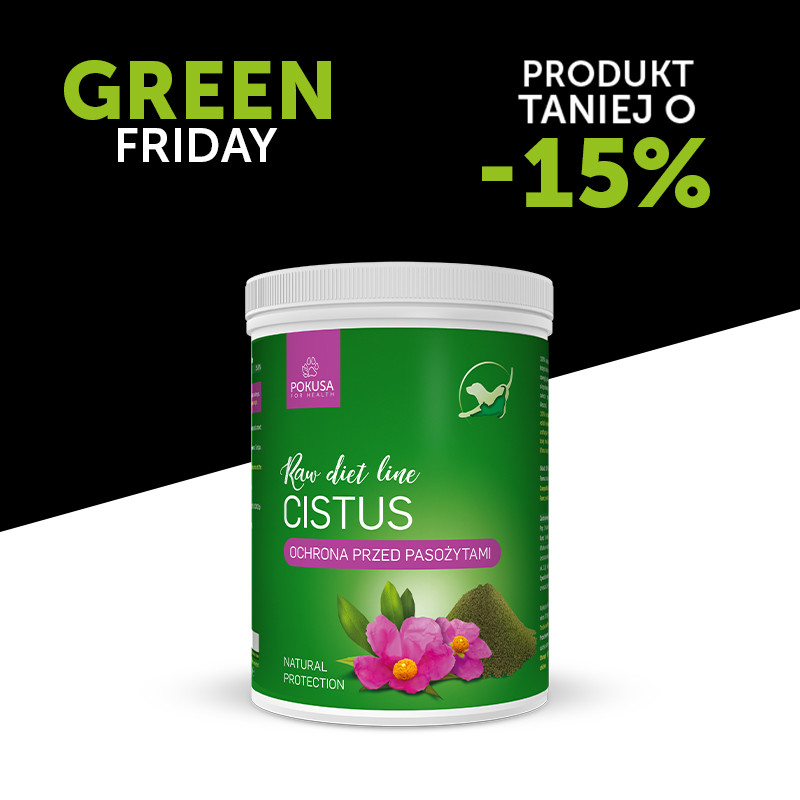Grey Cistus – Natural Support for Animal Health
Grey Cistus (Cistus incanus) is an evergreen shrub with exceptional health-promoting properties. Unlike common purslane, occurring in Poland, it grows on fertile, volcanic soils, which means it contains high concentrations of valuable substances, such as essential oils, tannins, resins, phenolic acids and flavonoids. Essential oils are natural, aromatic chemical compounds found in various parts of the plant, including leaves, flowers, bark, and roots.
Grey Cistus can be given to both dogs and cats, including puppies, kittens, pregnant and nursing dogs. The best effects are observed with regular use for at least 8 weeks.
Proven Health Benefits
Numerous scientific studies, including in vitro studies, have confirmed the action of Grey Cistus against many strains of bacteria and fungi. In traditional Middle Eastern medicine, especially in Turkey, it was used in the treatment of gastrointestinal ailments, such as diarrhea and peptic ulcer disease. Currently this plant is also cultivated under controlled conditions in Poland.
Rich Composition and Health Benefits
Grey Cistus is a rich source of plant polyphenols, including flavonoids (e.g., quercetin, kaempferol), ellagitannins (e.g., punicalagin, cystuzin) and phenolic acids (e.g., gallic acid, ellagic acid). Thanks to its high antioxidant content, it neutralizes free radicals, which can contribute to cell damage and the development of non-communicable diseases, such as cancers, neurodegenerative disorders or diabetes.
Free radicals are reactive forms of oxygen, which play an important role in the body. However, their excess can lead to oxidative stress, i.e., disruption of metabolic balance, which can result in many diseases.
Antioxidants contained in the Cistus support the immune system, ease inflammatory states, inhibit the development of infections, and improve glucose and lipid metabolism, which is beneficial for animals with diabetes.
Additionally, grey cistus exhibits anti-allergic action, alleviating inflammatory reactions triggered by allergens. Numerous scientific studies have also confirmed its antibacterial and antiviral properties (thanks to labdanum resin and essential oils), as well as antifungal, antispasmodic, and digestive-supporting effects. It may be helpful in treating gastrointestinal ailments.
Regular administration of grey cistus may improve overall health status of animals, boosting their immunity and protecting against many diseases.

